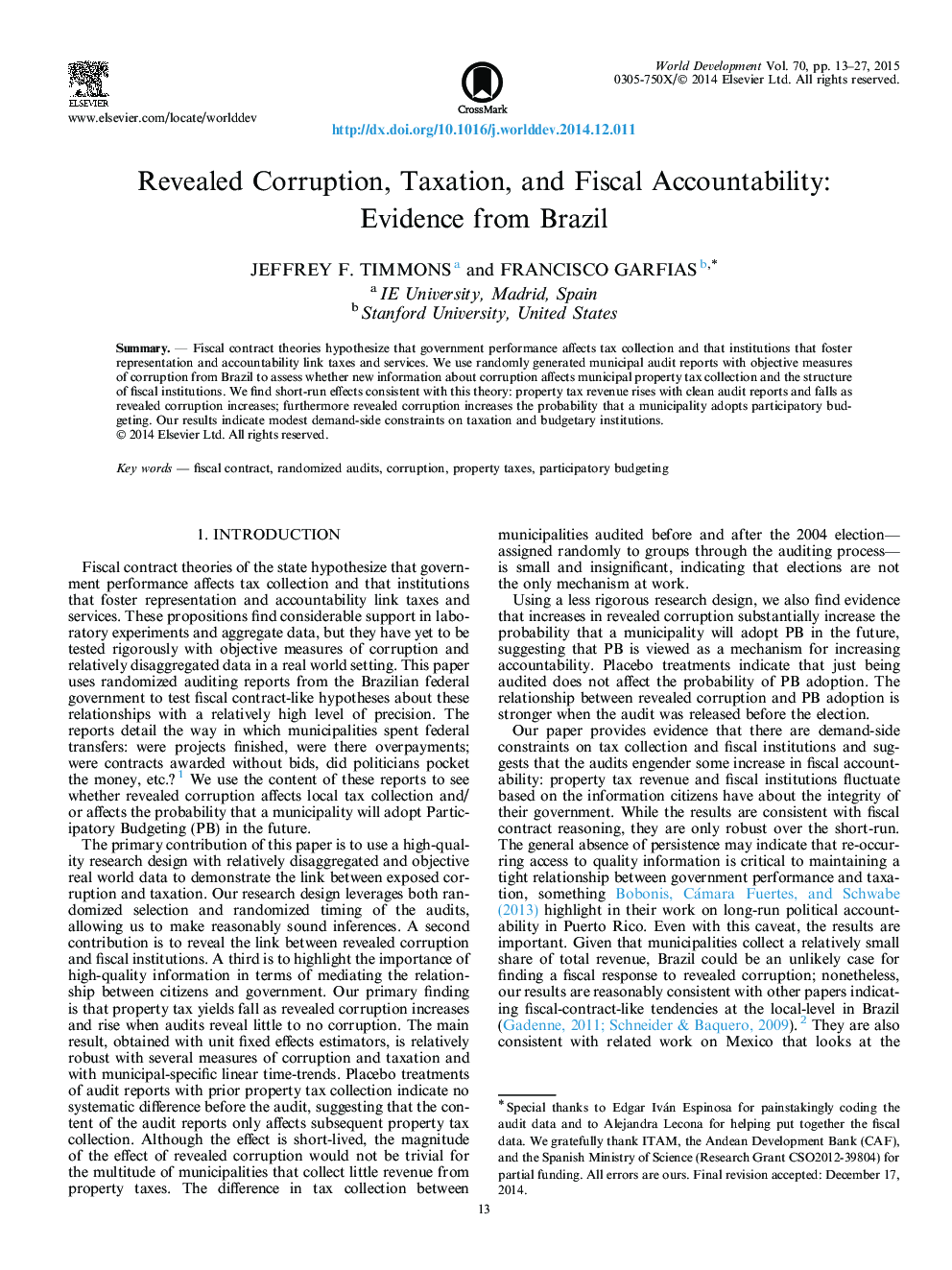| Article ID | Journal | Published Year | Pages | File Type |
|---|---|---|---|---|
| 7393786 | World Development | 2015 | 15 Pages |
Abstract
Fiscal contract theories hypothesize that government performance affects tax collection and that institutions that foster representation and accountability link taxes and services. We use randomly generated municipal audit reports with objective measures of corruption from Brazil to assess whether new information about corruption affects municipal property tax collection and the structure of fiscal institutions. We find short-run effects consistent with this theory: property tax revenue rises with clean audit reports and falls as revealed corruption increases; furthermore revealed corruption increases the probability that a municipality adopts participatory budgeting. Our results indicate modest demand-side constraints on taxation and budgetary institutions.
Related Topics
Social Sciences and Humanities
Economics, Econometrics and Finance
Economics and Econometrics
Authors
Jeffrey F. Timmons, Francisco Garfias,
